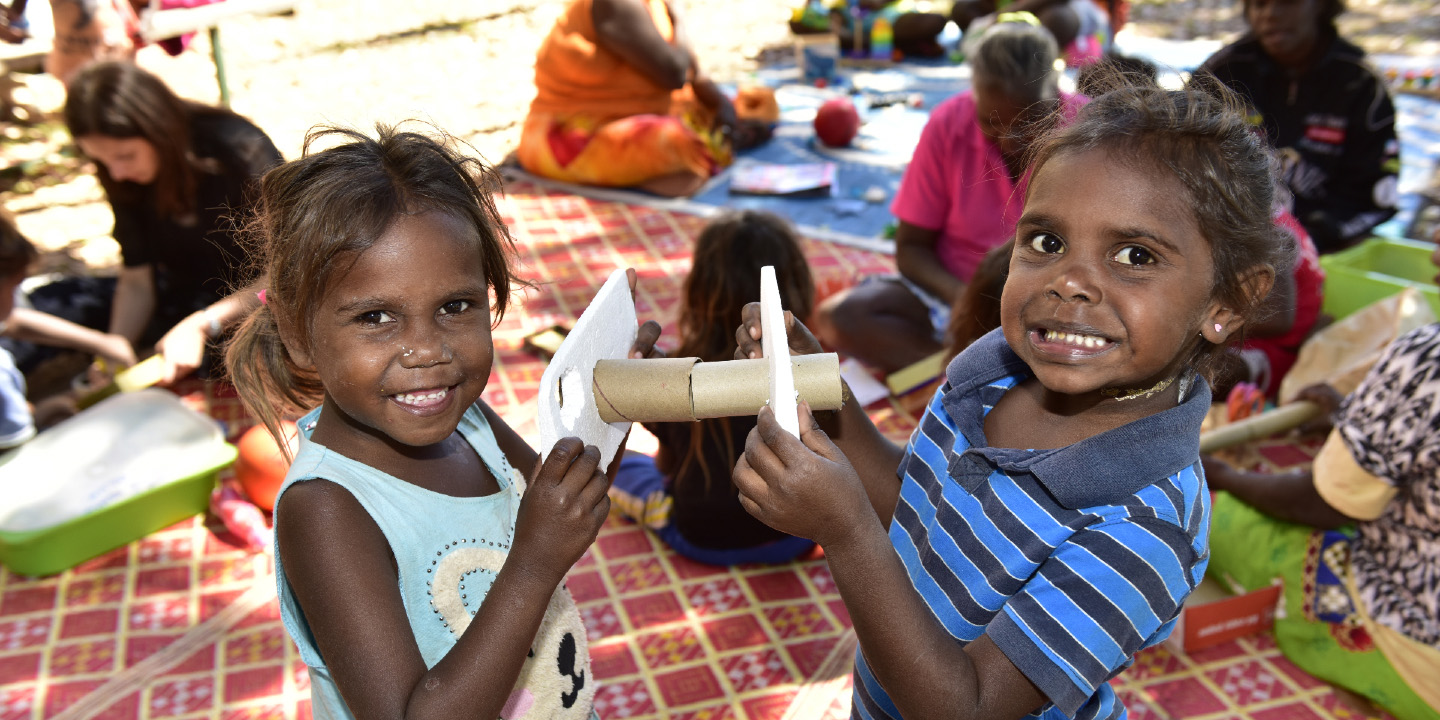
Indi Kindi: ACER’s Rapid Review
Research 25 Nov 2021 5 minute readACER’s review of Indi Kindi is supporting the program’s internal monitoring and evaluation processes.
Indi Kindi is a decade-long initiative of the Moriarty Foundation focused on early childhood wellbeing, nutrition, education and community development. The Indi Kindi program targets the learning needs of Aboriginal children and is an integral resource for families in the remote Northern Territory communities of Borroloola, Robinson River, and Tennant Creek and surrounding communities. Currently, 80 per cent of local children under five years-old attend regular Indi Kindi programs, leading to a recognisable impact on pre-school readiness and life outcomes.
A key aim of Indi Kindi is to break the cycle of generational disadvantage and provide a safe learning environment for Aboriginal children. To achieve this, community partnership and engagement with the program is central. Guidance of the Community Advisory Group – a committee of local Elders, leaders and Traditional Owners – influences a culturally appropriate understanding of resources, community, life outcomes and psychological health. Outdoor programs such as Walking Learning are targeted towards local learners, using exploration to improve creativity and engagement. Families are positioned as ‘agents of change’ outside the educational programs, promoting health and wellbeing in the wider community through leadership and, in some cases, ongoing employment within Indi Kindi.
ACER’s Rapid Review
In 2020 the Moriarty Foundation commissioned the Australian Council for Educational Research (ACER) to conduct a review of the Indi Kindi program to support their aim of establishing an evaluation framework for the program.
Led by ACER Principal Research Fellow Dr Pina Tarricone, the review provides a basis for the Indi Kindi program to further develop the documentation and evidence required to build the internal monitoring and evaluation processes of the three areas that frame the program: 1) nutrition, health and wellbeing; 2) education and development; and 3) culture and community.
The review’s outcomes were developed from an in-depth analysis of Indi Kindi documentation provided by the Moriarty Foundation, semi-structured interviews, Human Centred Design activities, and online surveys of stakeholders and leaders within the Community Advisory Group.
ACER’s National School Improvement Tool (NSIT) was used as the analysing instrument, assessing the full range of information provided and rating the progress of Indi Kindi against nine improvement domains.
The NSIT analysis informed the development of a program logic model and a theory of change map, which were used to make explicit key aspects and outcomes of the Indi Kindi program to inform future program planning, implementation and evaluation.
Information found in ACER’s review is supporting the Moriarty Foundation’s intention to build on the success of the Indi Kindi program and implement a similar model in other remote and regional Aboriginal communities across Australia.
Working in partnership with UNICEF Australia, Indi Kindi expanded its reach to deliver the program in Tennant Creek and surrounding communities in the Northern Territory.